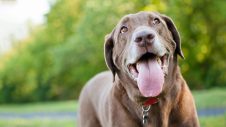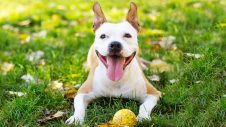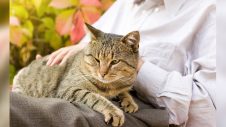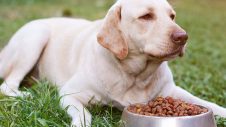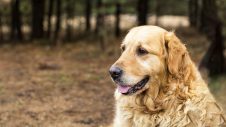Dogs and cats age approximately seven years to our one. In most cases, they’re considered seniors from seven years of age. Because they age so rapidly, their risk of developing disease or illness increases. Senior pets require a different level of care than their younger counterparts.
The signs of ageing can be subtle in our pets, especially our feline friends. You may notice the physical signs such as:
- Greying around the face.
- Less energy and sleeping more.
- Trouble toileting.
- Difficulty rising or walking.
- Reluctance to jump from heights.
- Appetite changes.
- Hesitation navigating stairs.
There are also internal signs that can go unnoticed without a veterinary examination.
The key to a long and healthy life is early detection. Our senior pets are more susceptible to a number of health conditions, including:
- Dental disease
- Diabetes
- Kidney and liver disease
- Heart disease
- Arthritis
- Cancer.
Visiting your vet twice a year will help slow down and even prevent the development of diseases.
During a senior health check, you can expect a thorough examination of your pet to include their joints, eyes, ears, teeth, skin, coat, heart, lungs, and abdomen and an assessment of their dietary requirements, body weight and condition, amongst others.
A sample of your pet’s urine and blood is taken for diagnostic testing to help determine any underlying or early signs of health issues that are not visible to the naked eye. Diagnostic testing can identify changes in your pet’s body that may require close monitoring or early treatment.
Helping our pets as they age
Just as we give special attention to the nutritional needs of puppies and kittens, dogs and cats heading into their golden years require premium-quality senior pet food to maintain their quality of life. Once our pets celebrate their seventh or eighth birthday, it is recommended that they transition to premium senior pet food. These special foods meet their changing nutritional requirements, giving them longevity and wellness into their senior years.
As our dogs age, their energy levels reduce, so it is important that they eat a well-balanced diet that is lower in calories but still has adequate protein and fat to maintain a healthy body weight and reduce the chance of becoming overweight.
As our cats age, you may notice they become less active and start spending more time indoors. Their metabolisms also slow down, making it harder for them to digest higher levels of protein and fat found in kitten and adult cat diets. Transitioning your cat onto a premium senior diet once they turn seven will be beneficial for managing their overall health.
Making small adjustments to your pet’s home environment can also assist them as they show signs of ageing. Things to consider when living with a senior pet could include:
- Providing easy access to food and water.
- Being patient and slowing down your walks.
- Keeping them cool in summer and warm in winter.
- Comfortable bedding.
Choosing the right food
Good quality senior pet food has many benefits that support your senior pet as they age. Premium quality pet foods will help to:
- Maintain ideal body condition.
- Boost antioxidants.
- Maintain healthy skin and coat.
- Support digestive health.
- Provide support for ageing joints.
- Support urinary tract health.
- Support healthy teeth and fresh breath.
The companionship and joy that senior pets provide to you and your family are incredibly precious. Enjoy every moment with them and look after them. Contact your local Greencross Vets today to book a senior pet health check.

 Greencross Vets
Greencross Vets 

